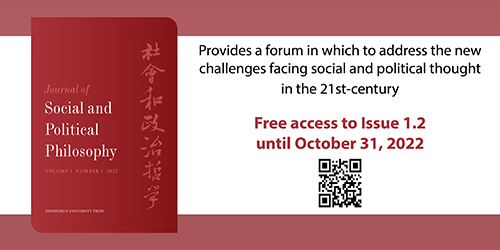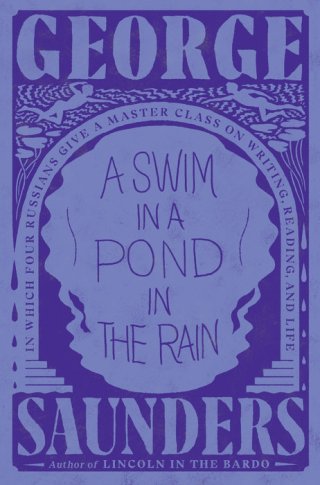Now, philosophy is not quite so lucrative as medicine (or perhaps even medieval candle-making). But when there’s less to go around, it’s all the more important to control who takes a bite from the pie. We’ve created politely distanced metrics—CV lines, citation index scores—that varnish our hiring policies in clinical quantification. And access to publications, the coin of our realm, is still throttled by the guild-enforcement mechanism of peer review. You’d better know on which finger to display your variable-inscribed ring, or how to do the sign-post handshake, or else you’ll be facing a barred door.
The following is a guest post by Regina Rini, Associate Professor and Canada Research Chair in Philosophy of Moral and Social Cognition at York University. It is part of the series of weekly guest posts by different authors at Daily Nous this summer.
There are even more subtle eccentricities, the sort that become invisible once you’re used to them but can throw a novice far off track. We like to assign philosophical viewpoints to imaginary champions, clad in definite articles and -ist suffixes (the realist, the internalist), and appear to be letting them fight it out for our amusement. “What can the blahblahist say to counter the anti-blahblahist’s attack?” we ask, as if we were commentators at a pugilism tournament sponsored by abstracta. This feels natural enough once you’ve read it a hundred times, but the initiate reader will often assume that ‘the realist’ is a specific, mysteriously unnamed person, like how Aquinas refers to Aristotle as “the philosopher”, or perhaps some Voldemort of metaethics.
The Philosophy Guild
by Regina Rini
In certain ways, our modern guild is a welcome replacement of an older, more overtly gatekeeping system. Once upon a time, if you had a promising idea for a paper, you’d get your secretary to type it up and mail it off to the editor of Mind, who’d glance at your name atop the letterhead and fondly recall many hours ale-quaffing at the Lamb and Flag with your doctoral supervisor before passing your paper down the hall to a tame reviewer. Of course, if you weren’t an old boy, or at least associated to one, you’d find the going much harder.
“Most contemporary philosophy writing is just bad writing… How did things go so wrong? It’s tempting to declare that philosophers are simply terrible writers, but I think that’s a mistake…”
The rise of professionalized, anonymous peer review did a lot of good, but it also created new problems for guild enforcement. If you don’t know who wrote the paper, how do you know it was written by a real philosopher? Call this the crackpot time-tax; it will be familiar to any philosophy professor whose email address is publicly available. Several times a year you receive unsolicited invitations to read 147,000 daringly-formatted words promising to solve the problem of causal determinism through asymptotic laser refraction or revolutionize Platonic ethics with a lost codex discovered in a Montpelier 7-11 restroom.
What we need is a cultural shift, a re-setting of expectations. I’m encouraged by the growing interest in public philosophy, especially initiatives to train philosophers in communication of ideas, like the Sanders Foundation’s Philosophy in the Media program run by Barry Lam. My hope is that, as more philosophers gain experience writing for a general audience, their academic work will start to show literary virtues as well. A guild is only what its members make of it. And a guild that doesn’t change, like the medieval candle-makers, is doomed to terminal irrelevance.
How did things go so wrong? It’s tempting to declare that philosophers are simply terrible writers, but I think that’s a mistake. Philosophers tend to be smart people, and they also tend to be readers, and smart people who read a lot usually gain a decent facility with the powers of words. But philosophers are people who write under extreme stylistic constraints, meant not for making things easy or enjoyable to readers, but instead to satisfy journals referees’ vague and empowered sense of what looks like a work of philosophy.
There are a lot of people without professional philosophical training who have original and compelling philosophical ideas. But it takes time to read their work and distinguish it from crackpottery, time that overworked journal editors and referees just don’t have. It’s so much faster to look for secret handshakes and guild shibboleths. And this is why we train grad students to write like a philosopher: that is how they will prove their guild membership while behind the veil of journal anonymity.

I call this the philosophy guild system. In medieval Europe, artisanal guilds provided training and ensured quality, but they also protected the economic interest of their members. By restricting their profession to a limited number of people—who would know each other via special rings, or handshakes, or shibboleth phrases—guilds inhibited competition and propped up their own wages. More recently, anyone who finds their stellar medical training in Abuja mysteriously ineligible for licensure when they migrate to Arizona knows what this is all about.
To understand how a group thinks, pay attention to what the initiates must work at learning. For instance, teach first-time philosophy students and watch them struggle with the peculiar prose of our journals. There’s the cumbersome jargon, of course, and the gratuitously anti-mnemonic acronyms. But these vices belong to all scholarly writing. Other literary landmines are more clearly philosophical. Let x stand for any variable which is unnecessarily inserted into a sentence S, such that S was perfectly comprehensible without said insertion of x, yet where a hypothetical audience A might judge S insufficiently rigorous, per A’s rigor-norms rN, were S to fail to feature x while A reason under rN. Then we can say that x is an overly quantified variable.

Then there’s sign-posting. In this paragraph I will explain what sign-posting is, then I will argue that sign-posting is overdone, then in the next paragraph I will discuss something other than sign-posting. Used sparingly, it can be helpful to remind your reader where they are amid a complex argument. But contemporary journal articles tend to feature sign-posts atop sign-posts atop sign-posts, crowding out actual arguments like Borges’ famous map the same size as the land it depicts. Apart from the aesthetic atrocity that is treating the literary form of Montaigne like a highway rest-stop information kiosk, excessive sign-posting actually diminishes an essay’s readability by inducing boredom and loss of focus on the central argument.
Simply put, most contemporary philosophy writing is just bad writing. This is not a new point. Bernard Williams memorably summarized the analytic style as “scientific reports badly translated from the Martian”. In her 2009 book How Professors Think, about interdisciplinary grant review panels, sociologist Michèle Lamont calls philosophy the “problem case” among humanities for appearing both unreadable and pointless to other academics. As Christine Korsgaard notes, in her Dewey Lecture at the Eastern APA earlier this year: “Many philosophers try to write in what you might call perfectly true sentences. A perfectly true sentence already contains all the qualifications it would need to make it perfectly true. It is unassailable. But it is often therefore unintelligible.”
What would it look like to publish philosophy outside the guild system? For more than two years, I’ve written a regular column, ‘The Morals of the Story’, in the Times Literary Supplement. Once a month, I connect an idea from philosophy to some current news headline. It’s very hard work, with tight deadlines (often three days from notion to publication) and even tighter word limits (900 words, shorter than this blog post). But it’s also extremely rewarding writing. I work with an excellent professional literary editor, Andrew Irwin, who reins in my showy allusions and defensive qualifications. At a moment when many public concerns—from trust in science to faith in democracy—might benefit from philosophical tools, I can at least feel as if I am trying to write for an audience beyond the guild.
Unfortunately, I don’t know how to make this scale up. I’m incredibly lucky to have the guidance of an editor, but there just aren’t enough of them to go around. Perhaps the best we can do is exert internal pressure to swap our guild signifiers for something better. Rather than expecting philosophy papers to come armored in unnecessary formalization, we might demand lively prose and judicious examples. I don’t have space here for a whole theory of how to balance philosophical rigor and accessible writing. My point is that our current guild norms discourage us from even trying.
It’s ironic things got this bad, since the analytic approach was born largely to bring clarity, rigor, and clean prose to a discipline drowning in obscurant Idealist verbiage. But not everyone has Bertrand Russell’s understanding of when to formally axiomatize set theory and when to just say plainly why nuclear weapons are terrifying. A discipline where writing the latter must ape the conventions of writing the former is a discipline that almost no one will ever voluntarily read.
All of this has costs, of course. It makes reading philosophy often a dreadful chore, where the smallest-publishable-unit of an idea has been hidden in a rhetorical ravine overgrown with prickly formalization and signs posting the way to further signs. And this means that almost no one reads contemporary philosophy.





